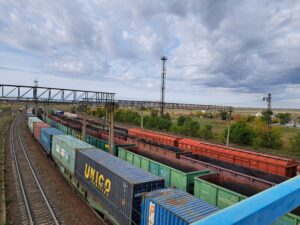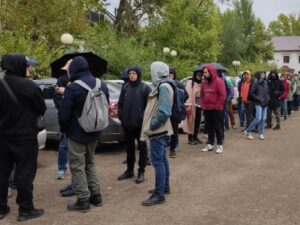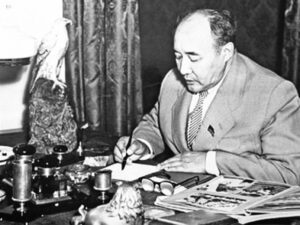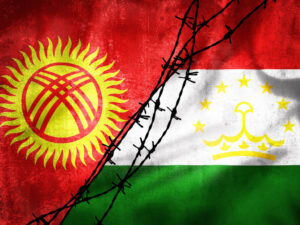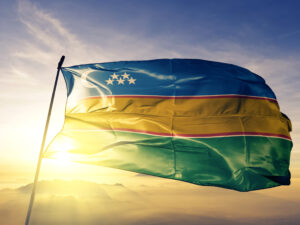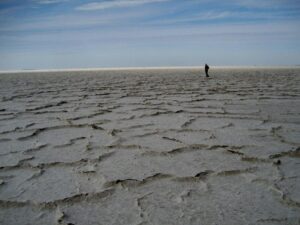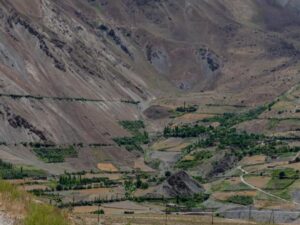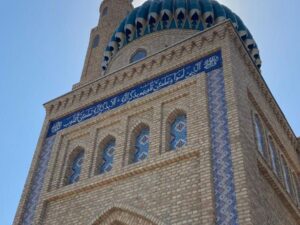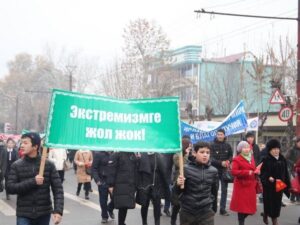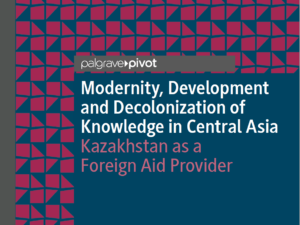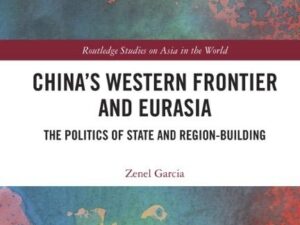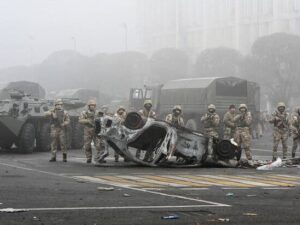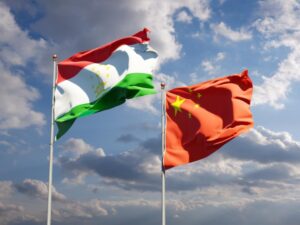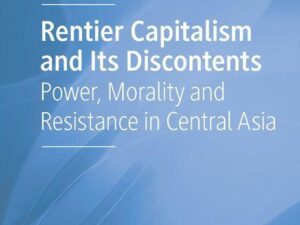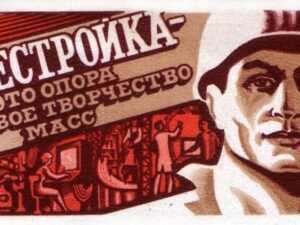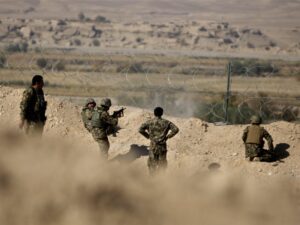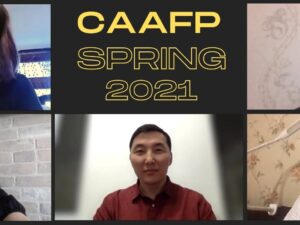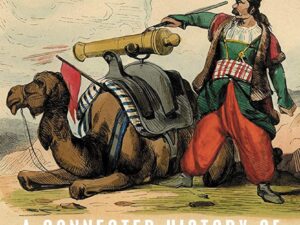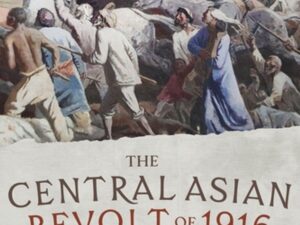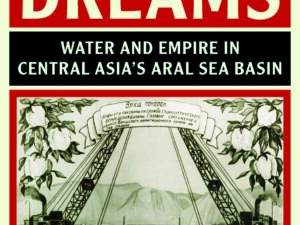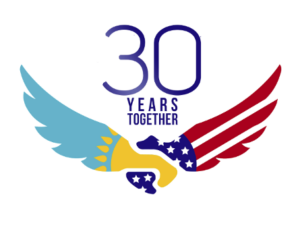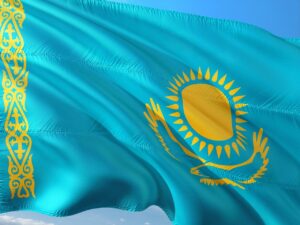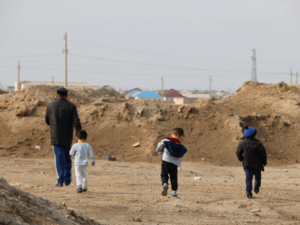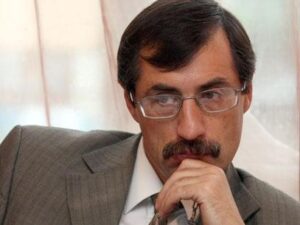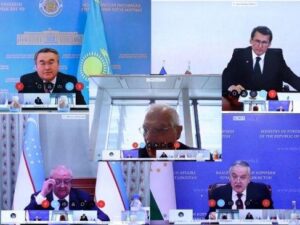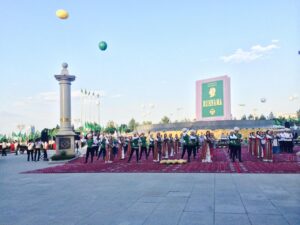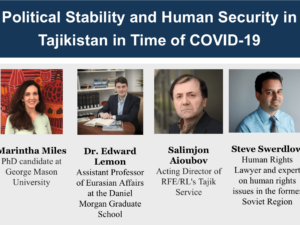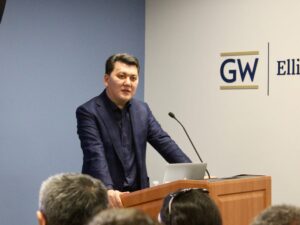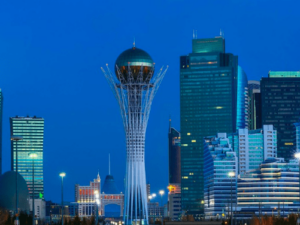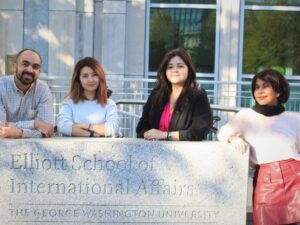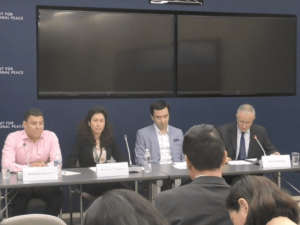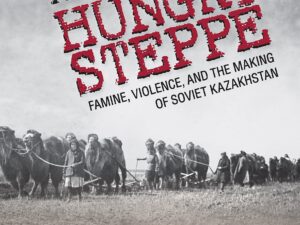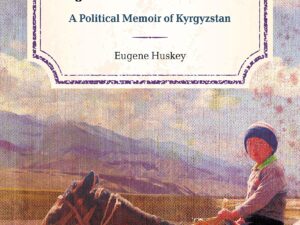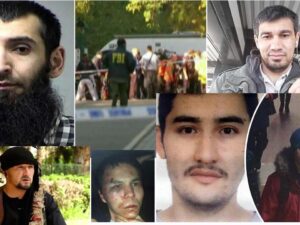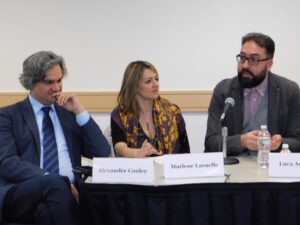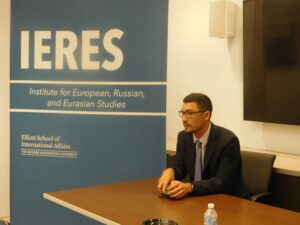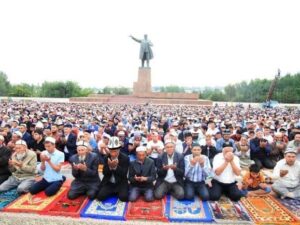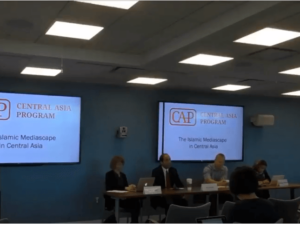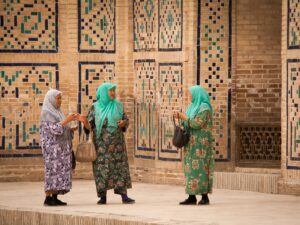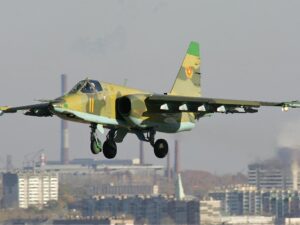
- This event has passed.
30th Anniversary of US-Kazakh Diplomatic Relations
10 February, 2021 @ 10:00 AM – 11:00 AM

The Central Asia Program and the Embassy of Kazakhstan invite you to a virtual discussion to mark the 30th anniversary of diplomatic relations between the US and Kazakhstan.
On December 16, 2021, Kazakhstan will celebrate 30 years of independence. Back in the 1990s, the country voluntarily renounced the fourth-largest nuclear arsenal in the world and closed the Semipalatinsk nuclear testing site. Over the years, Kazakhstan’s partnership with the United States has created solid foundations for the development of trade and economic relations as well as for cooperation in the political and security spheres. The Central Asia Program (CAP) and the Embassy of Kazakhstan to the United States have invited speakers who have been personally involved in strengthening U.S.-Kazakhstan ties to share their memories of the not-so-distant past and to draw out lessons from their experiences for the next generation of diplomats, experts, and students.
Please join us for a discussion moderated by Ambassador John Herbst, Director of the Atlantic Council’s Eurasia Center. Speakers include the Honorable Andrew “Andy” Weber, President Obama’s Assistant Secretary of Defense for Nuclear, Chemical and Biological Defense Programs; Ambassador Bolat Nurgaliyev, Ambassador of Kazakhstan to the United States between 1996 and 2000; and Ambassador John Ordway, U.S. Ambassador to Kazakhstan between 2004 and 2008.
Program Overview (EST)
10:00 AM – Introductory Remarks

Melinda Haring is the deputy director of the Atlantic Council’s Eurasia Center. Previously, she was the editor of the Atlantic Council’s most popular publication, the UkraineAlert blog. She is the author of the report Reforming the Democracy Bureaucracy, coauthor of Ukraine’s Internally Displaced Persons Hold a Key to Peace (Atlantic Council, 2017), and a contributor to Does Democracy Matter? (Rowman & Littlefield, 2017). Haring has worked for Eurasia Foundation, Freedom House, and the National Democratic Institute, where she managed democracy assistance programs in Azerbaijan, Georgia, and Russia. A graduate of Georgetown University, she holds an MA in Government with a certificate in Russian, Eurasian, and East European Studies. Haring is the vice-chair of the board of East Europe Foundation in Kyiv, Ukraine, a member of the supervisory board of Right to Protection in Kyiv, Ukraine, and a senior fellow at the Foreign Policy Research Institute. She is a term member of the Council on Foreign Relations.

Ambassador John Herbst served for thirty-one years as a foreign service officer in the US Department of State, retiring at the rank of career-minister. He was US Ambassador to Ukraine from 2003 to 2006, prior to that, he was Ambassador to Uzbekistan (2000-2003). In his last four years at the State Department, he served as the Coordinator for reconstruction and stabilization, leading the US government’s civilian capacity in societies in transition from conflict or civil strife, and to provide support to countries at risk of instability. Ambassador Herbst previously served as US consul general in Jerusalem; principal deputy to the Ambassador-at-Large for the Newly Independent States; the director of the office of independent states and commonwealth affairs; director of regional affairs in the Near East Bureau; and at the embassies in Tel Aviv, Moscow, and Saudi Arabia. He most recently served as director of the center for complex operations at National Defense University. He has received the Presidential Distinguished Service Award, the Secretary of State’s Career Achievement Award, and the State Department’s Distinguished Honor Award. Currently, Ambassador Herbst is Director of the Atlantic Council’s Eurasia Center.
10:10 AM – Welcoming Remarks
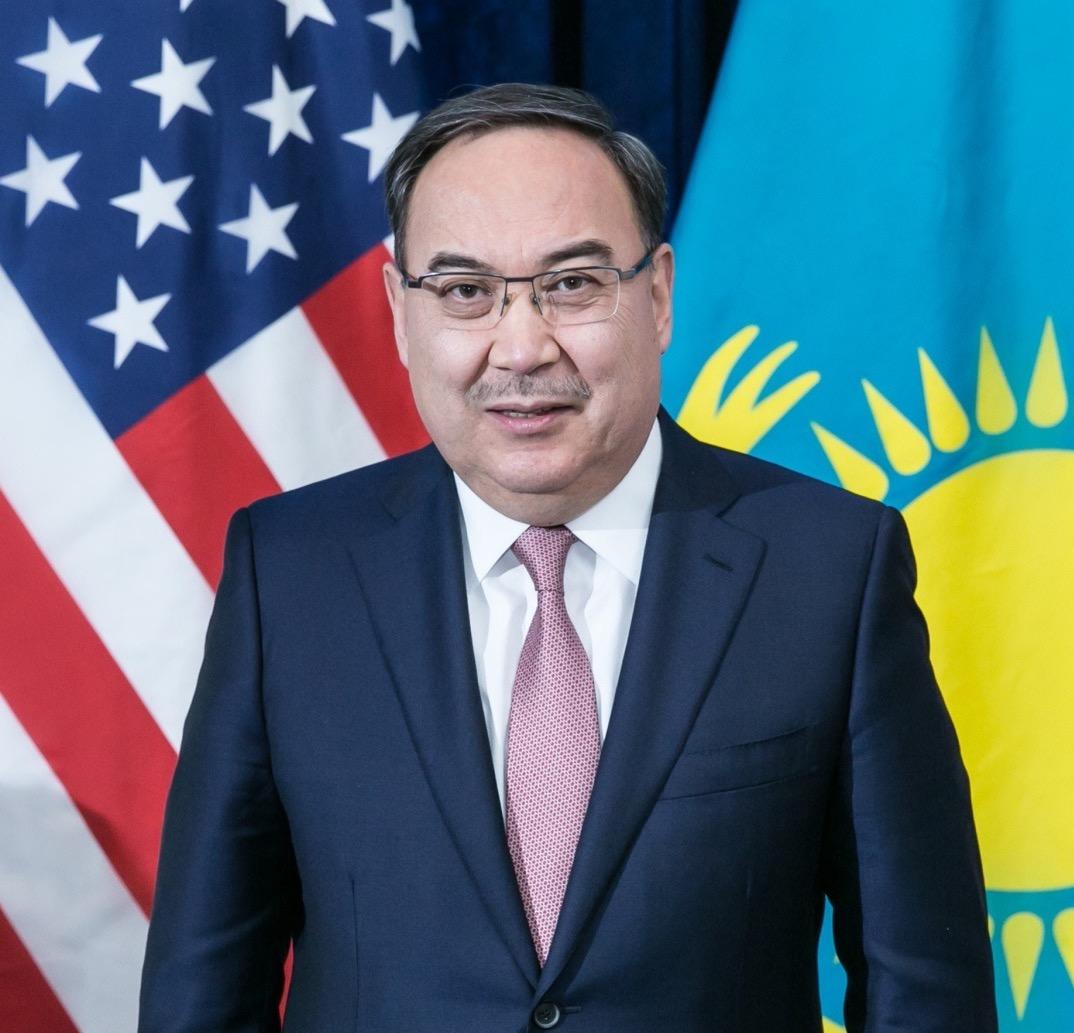
Ambassador Erzhan Kazykhanov is one of Kazakhstan’s most experienced diplomats. Born in 1964, in Almaty, he earned his bachelor’s degree in Oriental studies from the Saint Petersburg State University in 1987. Ambassador Kazykhanov holds PhD in History from Al-Farabi Kazakh National University. Prior to his appointment as the Ambassador to the U.S., Mr. Erzhan Kazykhanov has served as Kazakhstan’s Ambassador to the United Kingdom of Great Britain and Northern Ireland. Before becoming Ambassador to the UK, he held the position of Assistant to the President of the Republic of Kazakhstan and Minister of Foreign Affairs of Kazakhstan. He previously served as the Deputy Minister of Foreign Affairs of Kazakhstan, as well as the Ambassador of Kazakhstan to Austria, Permanent Representative of Kazakhstan to the International Organizations in Vienna and Permanent Representative to the United Nations in New York. He is the author of numerous articles on Kazakhstan’s foreign policy, economic diplomacy, multilateralism, and the role of the United Nations. He speaks Russian, English and Arabic, and is the recipient of several State awards and recognitions.
10:15 AM – Keynote Speakers

Ambassador John Ordway was born in 1950, in California. He completed 33 years of public service in the Foreign Service as U.S. Ambassador to Kazakhstan (from August 30, 2004 to October 7, 2008). Mr. Ordway’s distinguished career with the Foreign Service began in 1975. He has an extensive background in Soviet and Russian affairs, as well as experience in European security affairs, conflict resolution, and peacekeeping operations. Prior to becoming a Senior Foreign Service officer, Mr. Ordway served abroad at the U.S. Embassies in Prague (1978–1981), Moscow (1985–87), and in Brussels at the U.S. Mission to NATO (1993–1995). He was in Moscow from 1996 to 2001, serving the last two years as Deputy Chief of Mission. Was also Ambassador to Armenia (from November 2001 to August 2004). During his career Mr. Ordway oversaw complex and diverse policymaking and operational teams at large, medium and small embassies.
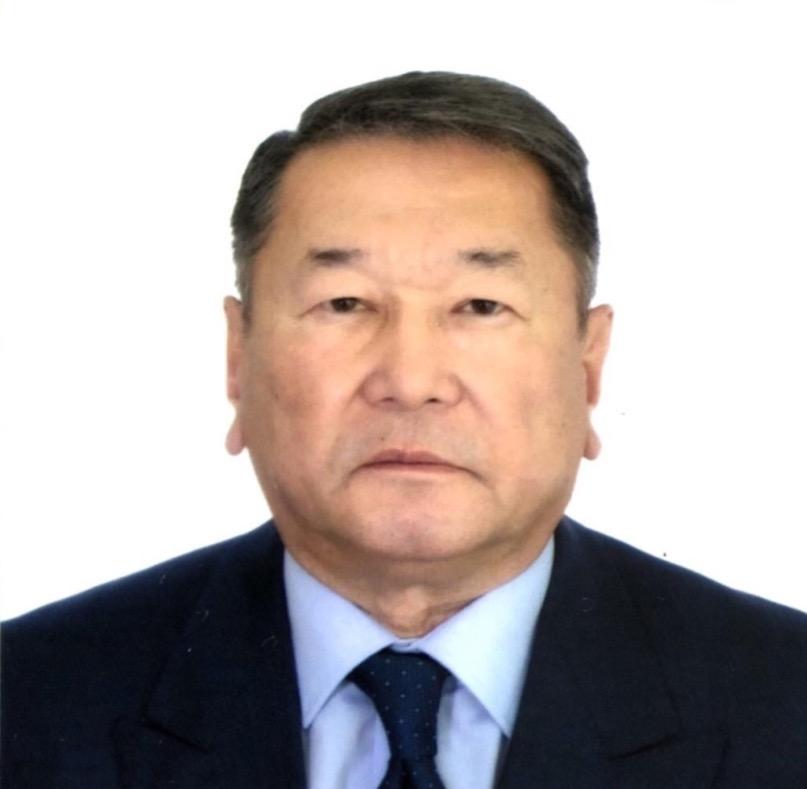
Ambassador Bolat Nurgaliyev was born in 1951 in the Akmola region of Kazakhstan. In 1980 he was hired by the USSR Ministry of Foreign Affairs. Then he was posted to the Soviet Embassies in Pakistan (1981–1985) and India (1990–1992). In 1992, Mr.Nurgaliyev joined the Ministry of Foreign Affairs of Kazakhstan, held the positions of Head of the Department of International Security and Arms Control, Deputy Minister of Foreign Affairs. Mr. Nurgaliyev was Ambassador of Kazakhstan to the United States (1996-2000), concurrently in Canada and Mexico; to the Republic of Korea (2001-2003); Japan (2004-2006); the State of Israel (2012-20014) with concurrence to the Republic of Cyprus. From 2007 to 2009, he was Secretary General of the Shanghai Cooperation Organization. In 2010, during the chairmanship of Kazakhstan in the Organization for Security and Cooperation in Europe (OSCE), he was Special Representative of the OSCE Chairperson-in-Office on protracted conflicts. From 2015 to 2018, he worked as an adviser to the Chairman of the Board of JSC “National Company Kazakhstan Temir Zholy”. Since December 2019 – Deputy Chairman of the Board of the Institute for Foreign Policy Studies.
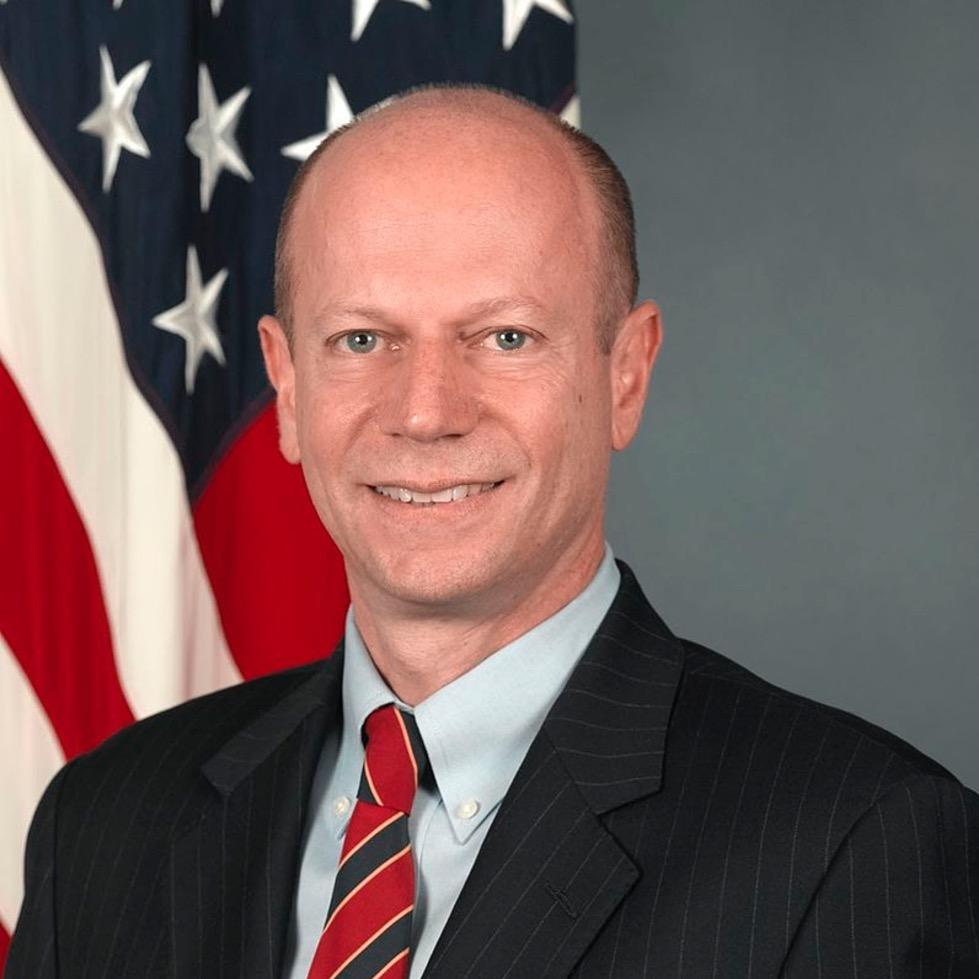
The Honorable Andrew “Andy” Weber has dedicated his professional life to countering nuclear, chemical, and biological threats and to strengthening global health security. Mr. Weber’s 30 years of US government service included 5,5 years as President Obama’s Assistant Secretary of Defense for Nuclear, Chemical and Biological Defense Programs. He was a driving force behind Nunn-Lugar Cooperative Threat Reduction efforts to remove weapons-grade uranium from Kazakhstan and Georgia and nuclear-capable MiG-29 aircraft from Moldova, to reduce biological weapons threats, and to destroy Libyan and Syrian chemical weapons stockpiles. In addition, he coordinated US leadership of the international Ebola response for the Department of State. Prior to joining the Pentagon as Advisor for Threat Reduction Policy in December 1996, Mr. Weber was posted abroad as a US Foreign Service Officer in Saudi Arabia, Germany, Kazakhstan, and Hong Kong. He serves on the Board of the Arms Control Association and the James Martin Center for Non-proliferation Studies International Advisory Council. He taught a course on Force and Diplomacy at the Georgetown University Graduate School of Foreign Service for 7 years, and was a Senior Fellow at the Harvard Kennedy School’s Belfer Center for Science and International Affairs. Mr. Weber is a member of the Council on Foreign Relations and Senior Fellow at the Council on Strategic Risks.




